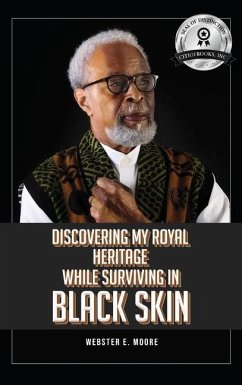Surviving in Black Skin is an illuminating virtual journey within the black skin of the author whose life was abruptly uprooted from his southern home in Mobile, Alabama, and transplanted onto the western coast of Los Angeles, California. The reader learns that his family's' abrupt transplantation was part of a much larger southern exodus of people in black skins in reaction to the tortuous lynching of 14-year-old kid named Emmitt Till. It's quite a paradox that the continued lynching's (6500 between 1865 and 1950), like the late George Floyd, didn't limit the murders to the South.The consequence of the covert and overt racism Webster experienced while living through the paradox of racial integration in high school, college, the Navy, as well as his workplace, provides the reader with Webster's vision of the institutionalized xenophobia which exploded into the Watts Rebellion of 1965. Webster introduces the reader to the launching of: Black Student Unions, the Black Panthers, the Congress of Racial Equality, and some of their leaders such as Malcolm X, Huey Newton, Stokely Carmichael, Angela Davis and the non-violent crusade of Dr. Martin Luther King Jr.. The author culminates these encounters by taking the reader out of the United States of America, to Africa's Egypt only to discover his great ancestry; Pharaohs in Black Skins who were the original authors of the first written language, literally the very African birth of Judaism, Christianity, and Islam. The reality that an advanced civilization of people in black skins, were the authors of the civilization of Ancient Egypt has not only been dismissed, but vehemently condemned by conventional Egyptologists, archaeologists, and even the present Arabian Egyptian government.The reader will take away from this book a better sense of "WHAT HAPPENED?" How the ancestorial history of people in black skins was literally transformed into the Greek, Jewish, and Islamic history, while "Black History" is relegated to "Slave History." Why are the names of the great Pharaohs not mentioned in the bible. The names of nearly every prince and priest are spelled out; first, second and third cousins; first and second wives; beggars and even prostitutes are named, but the names of the most important and powerful men and women in the world at the time are not mentioned. The king lists of pharaohs who ruled the most powerful and civilized country in the world for over three-thousand years aren't named. The leaders that provided the very blueprint for Judaism, Christianity, and Islam are never named, but simply referred to as pharaoh. Could it simply be because they were in Black Skins? The reader will eventually discover that we are all just one human race with one common heritage.AFRICA








